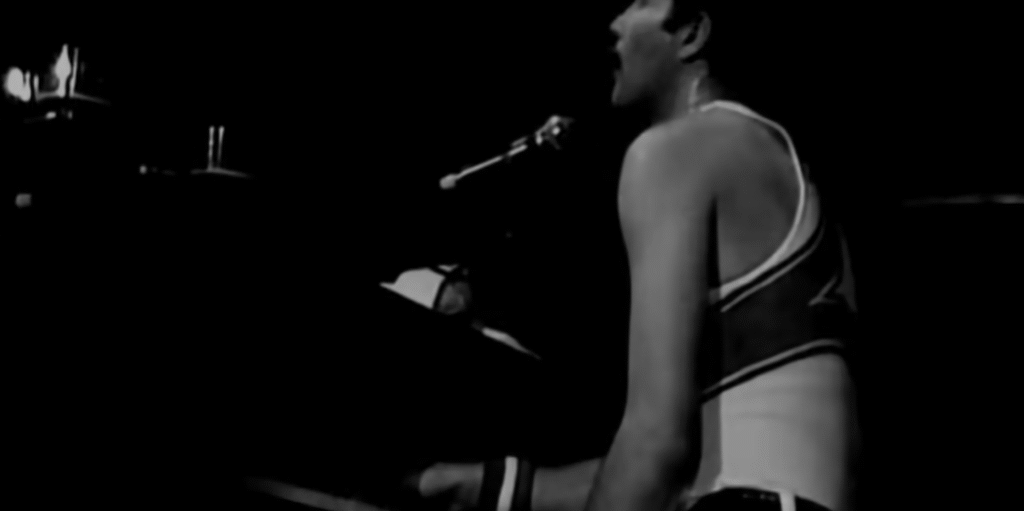| Category | Information |
|---|---|
| Alleged Father | Freddie Mercury (born Farrokh Bulsara) |
| Alias Used for Daughter | “B” (full name not publicly disclosed) |
| Reported Birth Year | 1976 |
| Alleged Mother | Unnamed wife of one of Mercury’s close friends |
| Profession of Daughter | Medical professional based in Europe |
| Children | Reportedly a mother herself |
| Relationship with Mercury | Allegedly visited by Mercury; gifted 17 volumes of personal journals |
| DNA Confirmation | DNA test reportedly conducted and verified privately through legal teams |
| Primary Source | Biography Love, Freddie by Lesley-Ann Jones |
| Public Confirmation | None from Queen members or Mercury’s estate |
| Reference | www.metro.co.uk/2025/05/27/freddie-mercurys-secret-love-child-took-a-dna-test-prove-paternity-23255758 |
Many people believed that Freddie Mercury’s life had been thoroughly examined, but in recent days, a biography called Love, Freddie has spurred an intensely personal discussion about it. A woman known only as “B,” who now asserts that she is the daughter of the legendary Queen frontman, is at the center of the revelation. The story, which is especially emotional, has sparked interest and criticism from both media circles and fan communities.

Lesley-Ann Jones, the author of the book, claims that “B” was created in 1976 following Mercury’s alleged brief liaison with the spouse of one of his closest friends. Just this particular detail has rekindled discussions regarding Mercury’s personal life, a topic that has historically been surrounded by ambiguity and contradiction. Mercury never mentioned fatherhood in interviews, and no child was publicly acknowledged during his lifetime, despite his well-documented relationships with both men and women and his public identification as bisexual.
Jones’ book, however, provides an incredibly thorough description. Throughout his life, she says, Mercury kept in close contact with his daughter, even paying her frequent visits and eventually presenting her with an impressive collection of 17 handwritten journals. Even though he never disclosed the relationship to the public, these writings, which are said to be full of introspective and personal thoughts, imply that he took it seriously. It is implied that he not only knew about the child but also made an effort to establish a deep, if covert, relationship with him.
The timing of this story is what makes it so captivating. The claim, which was made public more than thirty years after Mercury’s death in 1991, comes at a time when identity discovery and DNA testing are both very personal and widely available. DNA discoveries have led to the resurfacing of celebrity family histories in recent years; some have confirmed long-standing rumors, while others have revealed entirely new chapters. According to those criteria, the allegations made against Mercury’s daughter bear a striking resemblance to past disputes involving legendary musicians such as Bob Marley, Prince, and even Marvin Gaye.
According to the book, legal teams participated in the private testing and verification of a DNA test. The author remained steadfast in the face of critics’ demands for public evidence, stating that confidentiality agreements prohibited the sharing of such information. Given the seriousness of the accusation, her cautious approach also shows a measured respect for privacy.
Jones also responded to critics on social media, saying that the biography has garnered a resounding amount of support. She emphasized that readers should approach the story patiently because additional context will become apparent and characterized the verification process as incredibly clear. Her credibility gives the claim more weight for people who are familiar with her prior work, especially her thorough biographical research on Mercury.
It’s interesting to note that B has apparently decided to keep most of this private. She is currently employed in the medical industry in Europe and has refrained from speaking to the media or making any attempts to capitalize on her purported parentage. Many people find her decision to stay out of the spotlight to be especially dignified and possibly even affirming—she seems to be telling her story on her own terms rather than pursuing fame.
This development adds a great deal of emotional depth to Freddie Mercury’s legacy. The popularity of the movie Bohemian Rhapsody, which presented an artistic but occasionally sterile depiction of Mercury’s personal life, has significantly renewed public interest in him over the last ten years. Many people view the artist as an untouchable icon, but the possibility of a daughter—conceived during a period of intense artistic and emotional intensity—offers a more complex and humanizing portrayal.
Mercury’s relationship with Mary Austin—often referred to as the love of his life—was seen as essential to who he was. Even after Mercury came out as bisexual, the two stayed close, and Austin eventually inherited the majority of his wealth. Fans have started wondering whether the journals or letters might allude to the child subtly, concealed in metaphors or personal reflections, even though there is no proof she was aware of this purported daughter.
The notion that Mercury left behind countless handwritten notes suggests the kind of reflective artist that is uncommon in contemporary cycles of celebrity. It serves as a reminder that beneath the glitz and drama lay a man figuring out identity, creativity, loss, and love—possibly for the benefit of a daughter he couldn’t openly claim. Even though these gestures were never intended to make headlines, they now have historical significance.
Legal analysts are also investigating the ramifications of the story. In the event that the daughter’s claim is legally validated, issues pertaining to inheritance and intellectual property rights may come up. Queen’s musical rights continue to bring in a sizable sum of money, and Mercury’s estate is still actively managed. However, this narrative appears to be more grounded in personal truth than financial pursuit in the absence of public legal action or claims to those rights.
Meanwhile, fans are still split. B’s story has been embraced by some, who have called it especially moving. Others urge prudence, claiming that a statement from Freddie’s estate or his remaining bandmates is necessary. However, the story has significantly changed public opinion even in the absence of official confirmation. Mercury is portrayed as a man making incredibly human decisions under intense scrutiny rather than as an elusive genius.
The emergence of this story feels extremely relevant in a time when emotional honesty and art are both redefining legacy. It questions presumptions, honors complexity, and challenges us to think about how personal realities influence public mythologies. B is still mostly unknown at this point, which may be for the best—her voice subtly reshaping a legend through presence rather than performance.
